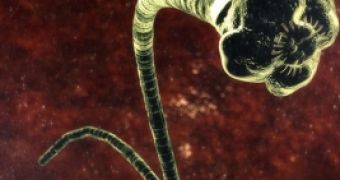Florida's Department of Health has issued a warning concerning a brain-eating parasite known as Naegleria fowleri. The parasite lives in freshwater lakes and in rivers. It kills about 99% of the people it infects.
Officials issued this warning after a 12-year-old boy named Zachary Reyna had contracted the parasite.
The teenager became sick in early August, shortly after swimming and playing with friends in a ditch filled with freshwater, The Examiner tells us.
As previously reported, Zachary is presently undergoing medical treatment at Miami Children's Hospital.
Officials say that, now that the parasite has resurfaced in Florida, people would do best to be cautious when swimming, jumping of diving in local rivers of lakes.
They further detail that Naegleria fowleri thrives in areas where temperatures are high and water levels are low.
“The amoeba is commonly found in warm freshwater such as lakes, rivers, ponds and canals,” the Florida Department of Health writes in a press release issued on August 13.
“Infections usually occur when temperatures increase for prolonged periods of time, which results in higher water temperatures and lower water levels. The peak season for this amoeba is July, August and September,” it adds.
By the looks of it, people cannot contract this amoeba by drinking contaminated water.
On the contrary, specialists say that Naegleria fowleri enters a person's body through the nose.
It then travels to the brain, and destroys both neurons and synapses. More often than not, people infected with this parasite go into a coma and eventually die.
Those who contract the parasite display symptoms such as headaches, nausea, vomiting or fever within one to seven days after infection.
Stiff neck, loss of balance, seizures and hallucinations are other symptoms linked to Naegleria fowleri infections.
Interestingly enough, one other case of infection with this parasite has recently been reported in Arkansas. 12-year-old Kali Hardig, the girl affected by the amoeba, has been given a cocktail of drugs and appears to be doing better now.

 14 DAY TRIAL //
14 DAY TRIAL //